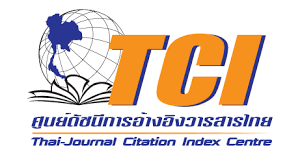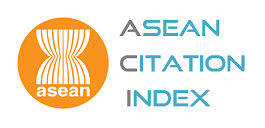Efficiency Enhancement of Law Enforcement to Prevent and Resolve a Ponzi Scheme Problem in the Transnational Venture Capital
Abstract
The objectives of this research are to study the problems and impact of a fraudulent transnational venture capital firm using Ponzi schemes to defraud investors in Thailand and to study the problems, obstacles, and limitations of law enforcement as well as offer recommendations to empower law enforcement agencies to deal with the problem more effectively. This qualitative study employs documentary research, non-participant observation, in-depth interviews, and a focus group. The results show that a Ponzi scheme was organized by criminals that used social media and a fraudulent transnational venture capital investment company as deception tools. In this case, the Royal Thai Police arrested 32 suspects. There were 50,000 victims, and cash flow in the company bank account was about 10,000 million Baht. The problems, obstacles, and limitations law enforcement faced were divided into the following five categories: offenders, victims, legislation, law enforcement, and informal finance. The following seven recommendations were proposed to empower law enforcement authorities to become more efficient: establishing a Ponzi scheme prevention and suppression agency, establishing a fund to prevent Ponzi schemes, informing the public about Ponzi schemes, applying foreign laws to domestic laws, increasing domestic funding, implementing rotating community savings, and establishing a special jurisdiction for economic crime cases.
Keywords: Efficiency Enhancement, Law Enforcement, Ponzi Schemes, Transnational Organized Crime, Venture Capital, Fraudulent
DOI: 10.14456/rjsh.2020.2
References
Akkaraviboon, W. (2009). Legal Measures for Direct Sale Consumer Protection: Case Study of The Pyramid Scheme (Master’s thesis). Dhurakij Pundit University, Bangkok.
Benson, M. L. (2009). White-Collar Crime, 21st Criminology: A Reference Handbook. US: Sake Publication
Boonyopas, V. (2014). Economic Crime. Bangkok: Nititham Publisher.
Financial Action Task Force. (2019). What is Money Laundering. Retrieved January 25, 2019, from http://www.fatf-gafi.org/faq/moneylaundering/
Hagan, F. E. (2008). Introduction to Criminology: Theories, Methods, and Criminal Behavior (6th ed).UK: Sage Publication.
International Criminal Police Organization. (2019). Money Laundering. Retrieved November 20, 2018, from https://www.interpol.int/Crimes/Financial-crime/Money-laundering
Kruthmechai, D. (1999). Legal Measures Concerning Electronic Commerce (Master’s Thesis). Ramkhamhaeng University, Bangkok.
Lobyaem, J. (2006). Legal Measures for Venture Capital in Thailand (Master’s Thesis). Thammasat University, Bangkok.
Mookjang, P. (2002). Measures to Prevent and Suppress Transnational Organized Crime Focus on Money Laundering (Doctoral Dissertation). Mahidol University, Bangkok.
Parietti, M. (2019). Blue Collar vs. White Collar: What's the Difference?. Retrieved July 15, 2019, from https://www.investopedia.com/articles/wealth-management/120215/blue-collar-vs-white-collar-different-social-classes.asp
Rattanapirom, S. (2010). The Government Policy in Controlling Crime against Chain Loan in Direct Sales (Master’s Thesis). Dhurakij Pundit University, Bangkok.
Sakkosol, C. (2001). Money Laundering: A Case Comparing Between the Thai Laws and United Nations Convention against Transnational Organized Crime (Master’s Thesis). Chulalongkorn University, Bangkok.
Samkoses, V. (2017). Savant Shogun: Fraudulent International Style. Retrieved from https://www.the101.world/ponzi-scheme/
Sinloyma, P. (2007). Criminal Patterns and Methods of Pyramid Schemes in Direct Sale Business in Thailand (Doctoral Dissertation). Mahidol University, Bangkok.
Siripetch, N. (2011). Legal Measures Pertaining to Business Persons Dealing with the Futures Contract Business and the Requirement to Report Business Transactions in Accordance with the Anti- Money Laundering Law (Master’s Thesis). Ramkhamhaeng University, Bangkok.
Sutherland, E. H. (1940). White-Collar Criminality. American Sociological Review, 5(1),1-12.
Tantayanon, R., & Phanawon, S. (2011). Venture Capital. Bangkok: Bunsiri Printing.
Thailand’s Action Taskforce for Information Technology Crime Suppression. (2018). Arrest of Senior Management and Head of Ponzi Schemes Network. Retrieved from https://touristpolice.go.th/2018/08/13/
Treadwell, J. (2006). Criminology. UK: Sage Publications.
United Nations. (2001). General Assembly; Resolution adopted by the General Assembly. Retrieved
January 25, 2019, from https://www.unodc.org/pdf/crime/a_res_55/res5525e.pdf
United States Securities and Exchange Commission. (2018). Ponzi Schemes. Retrieved January 25, 2019, from https://www.sec.gov/fast-answers/answersponzihtm.html

Indexed in


Search